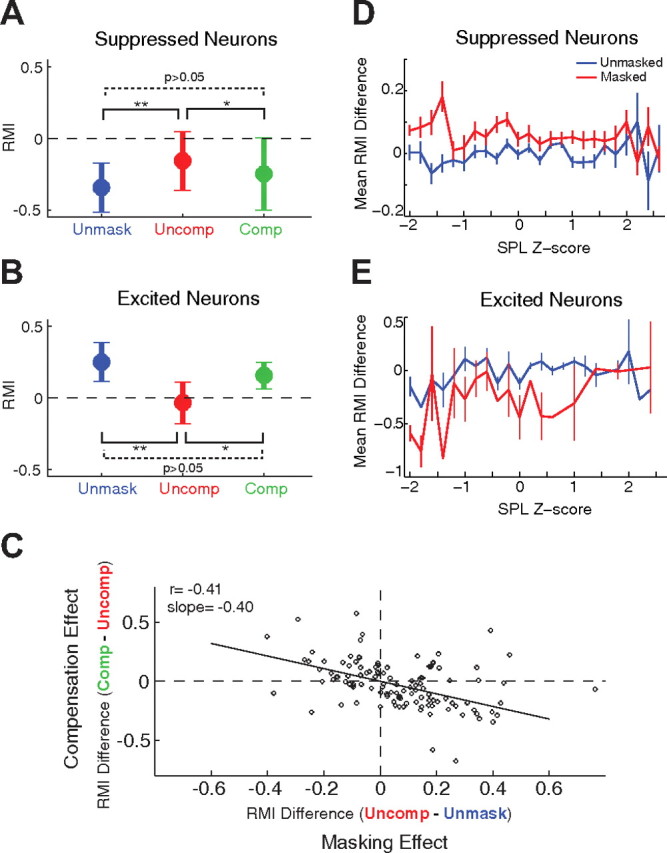Figure 6.

Correlation between neural responses and vocal compensation behavior. The effects of vocal compensation on neural responses were examined. Vocalizations produced during the masking noise condition were classified as uncompensated (“Uncomp”, red), or compensated (“Comp”, green) based upon whether the intensity of vocalization fell below or above the 75th percentile of unmasked vocal intensity distribution for a particular animal. Unmasked vocalizations below the 75th intensity percentile are labeled as unmasked (“Unmask”, blue). Neural responses were analyzed by grouping vocalizations into these categories. A, Population mean RMIs for suppressed neurons showed a significant reduction in magnitude during masking noise for uncompensated but not compensated masked vocalizations as compared with unmasked vocalizations (*p < 0.05, **p < 0.001, Kruskal–Wallis). B, Population mean RMIs for excited neurons also showed a significant reduction in magnitude during masking for uncompensated but not compensated vocalizations. C, The neural effects of vocal compensation (measured by the RMI difference between Comp and Uncomp groups) were compared with the effects of masking (RMI difference between Uncomp and Unmask groups) on a neuron-by-neuron basis. Compensation and masking effects were significantly correlated (r = −0.41, p < 0.001). Most compensation responses were in the opposite direction of masking responses, reflected in the negative slope (−0.40), indicating partial correction of the effects of masking. D, The neural effects of masking and vocal intensity changes are further examined for suppressed neurons. Mean RMIs for masked (red) and unmasked (blue) conditions are compared, as functions of vocalization SPL, expressed as z-scores relative to the unmasked mean SPL (for that session). During masking, suppressed neurons increased responses for unchanged or decreased SPLs, but less so for larger intensity increases. Error bars indicate SEM. E, Same format as in D. Mean RMI for excited neurons shows a decrease during masking for softer vocalizations, but with little effect for louder vocalizations.
